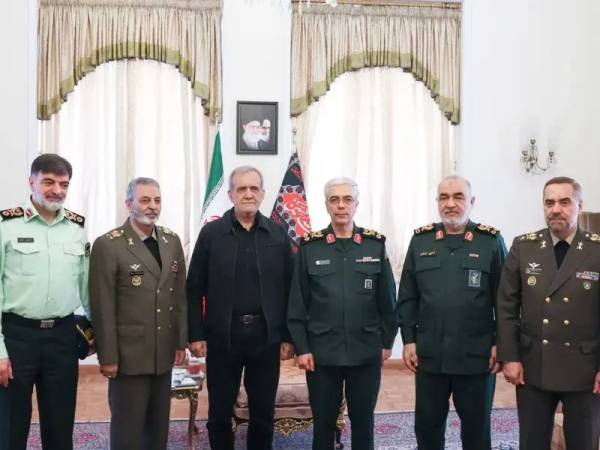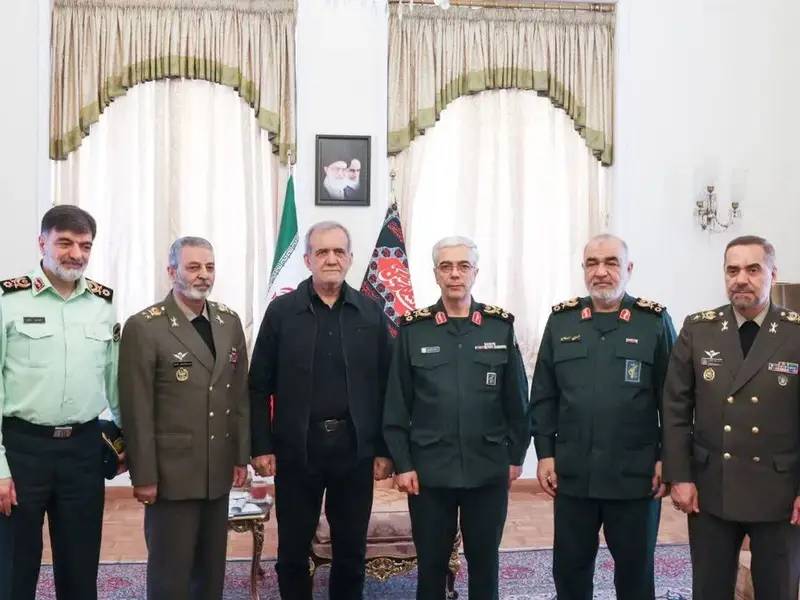Iran's top military commanders from the Revolutionary Guard and the traditional army, met with President-elect Masoud Pezeshkian on Saturday, a week after he won a runoff against a hardline candidate.
The military leaders included Chief of Staff Mohammad Bagheri, IRGC Chief Hossein Salami, Army Commander Abdolrahim Mousavi, Police Chief Ahmad-Reza Radan, and Defense Minister Mohammad Reza Ashtiani.
Despite a history of tensions with some past governments, Bagheri declared, "The armed forces are ready to assist the new government in advancing the country's affairs."
Last week, the IRGC chief-commander had congratulated Pezeshkian on his election victory, stressing the Revolutionary Guard's "all-out preparedness" for enhanced cooperation with the incoming administration.
The IRGC, founded after the 1979 Islamic Revolution, has grown into a powerful entity with substantial military, economic, and political influence. Its hardline stance contrasts sharply with the reformist agenda of greater political openness, economic liberalization, and improved relations with the West.
Administrations, like those of Presidents Mohammad Khatami and Hassan Rouhani, pushed for engagement with the West, while the IRGC remains committed to preserving revolutionary principles and resisting Western influence. This has led to frequent power struggles, with the IRGC often undermining their policies and supporting hardline candidates.
Former centrist President Hassan Rouhani sharply criticized the IRGC in 2017 for exerting influence over political and economic affairs. However, Pezeshkian, who is presented by some as a reformer, has pledged to follow policies charted by Supreme Leader Ali Khamenei.
Economically, reformist attempts to curb the IRGC's dominance in sectors like construction, telecommunications, and energy have been met with resistance, as the IRGC seeks to maintain its economic stronghold.

